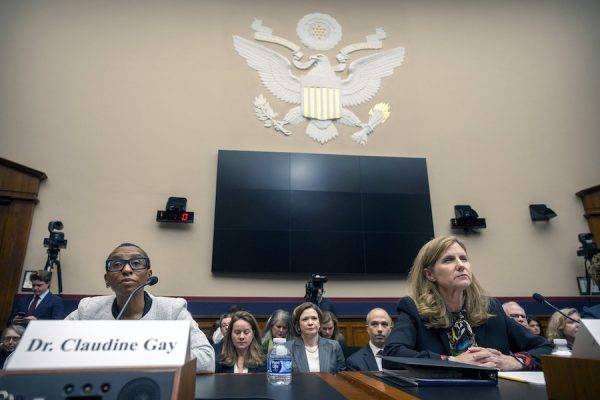The appropriateness of blame has little to do with the confused debate about free will and determinism. There are no metaphysical facts of the matter about whether people are responsible for what they do. Instead, holding people responsible is a practice—it’s something that we do. What makes it appropriate is that human beings deliberate and act together.
When you act individually, you constantly guide your movements, not only by directing them toward your goal, but also by correcting for unexpected contingencies as you go. You step over a branch on the sidewalk to avoid tripping or find a new route or a new method if the one you hoped to use is unexpectedly blocked. You do this because actions are essentially subject to a standard of success and failure, and you rebuke yourself if, as a result of not minding what you are doing, you fail to achieve your goal.
When people act together, forming a collective agent, holding one another accountable is an essential part of that collective agent’s way of guiding its movements. It is the way we collectively mind what we are collectively doing. When we fail as a result of one of us not minding what he is doing, something has to be settled about what has happened before we can decide to go on acting together, or to give it up. It is in this context that we blame each other for faulty action.
Blaming holds people responsible for violating rules we have made collectively.
Many of the cases Barbara Fried mentions—in which we blame a stranger for committing a crime, or for taking on a mortgage or a college loan without due care for the consequences—may seem to have nothing to do with collective action. But there is a connection to collective action in these cases.
The two hotbeds of blame—the family and the state—are also the fundamental cases of life lived together. In the case of marriage, the connection to collective action is obvious: it involves a decision by two people to share their lives, and so to act together. It is not surprising that when things go badly marriage becomes a scene of mutual recrimination and blame. At the limit, people who get divorced may spend the rest of their lives rehearsing in their minds, and explaining to their friends, all of the reasons why the failure of the marriage was their partner’s fault.
Immanuel Kant believed that life in the state is also life lived together. The state is a form of collective agency made necessary by the fact that we occupy a shared territory. Even if we each have our own property, we have to make decisions about where the boundaries of that property lie and what counts as crossing them, and those decisions must be made together. Once the institutions that make that possible are in place, we make many other decisions together, which become embodied in our collective institutions and laws. Here is the connection between blaming strangers and collective action. It can be appropriate to blame people for actions that seem to have nothing to do with us, because when people violate the laws of society, they violate decisions that we take ourselves to have made collectively.
The same, I believe, is true of general moral blame: it is based on the Kantian thought that moral laws are laws for living together that are made by us all, and therefore laws in whose enforcement we all have a stake.
These ideas make it easy for me to agree with Fried that blame can, and very often should, be mitigated by empathy for the wrongdoer, by an awareness of the conditions and pressures that led him to act as he did. This is not a concession to determinism and does not imply that holding people responsible is a metaphysical error. It is simply an acknowledgement that understanding the problems that lead to faulty action—and as Fried urges, trying to solve them—is often sufficient to enable us to go on acting together.
Blame becomes intractable when we must go on together but do not agree on what our collective life should look like and therefore on which actions are faulty. Perhaps because she is focused on the American context, Fried does not mention the biggest hotspot of blame in recent times: the Israeli-Palestinian conflict. Forced to share territory and unable to come to an agreement about what a shared life there should look like, each party insists that its actions are not faulty but rather appropriate responses to the circumstances, leaving the other party with nothing to do but blame. There is a lesson in this.
The rise of blame in America is not a result of people refusing to grant the scientific evidence for determinism. It is a result of the fact that America is increasingly divided into genuinely separate communities, forced to go on together with no common vision of what our shared life should be like.







